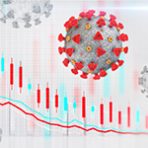Ingenious Talks Online: Modeling COVID-19 Using Spatial Modeling and Simulation
Ingenious Talks Online: Modeling COVID-19 Using Spatial Modeling and Simulation
Categories: General, Lectures and Seminars, Virtual | Intended for Anyone

Location Details
Online via Zoom. Login details will be sent to registered participants by email prior to the event.
Contact Information
Laura Kilpatrick, 613-520-2600 ext. 1184, FacultyofEngineeringandDesign@carleton.ca
Registration
Cost
Free
About this Event
Host Organization: Faculty of Engineering and Design
In recent years, simulation models based on traditional Susceptible-Infectious-Recovered (SIR) equations have been used to predict pandemic dynamics. These models are now being used to predict the spread of COVID-19 in the majority of countries worldwide – classifying the number of individuals involved in the transmission of the disease into those that are Susceptible to the virus, those who are Infectious and those who have Recovered.
Although these theoretical methods and their extended models (accounting for added factors such as disease latency, the number of individuals exposed, the effects of quarantines and more) are useful to define the theory of disease, they are often difficult to apply in practice.
As we have seen over the past several months, these methods based on differential equations are useful in predicting the number of infected individuals and to devise different global policies to control the pandemic. Nevertheless, they cannot be easily adapted to include newly available information on COVID-19, or to combine them with real-world data on demand.
Having studied issues related to SIR-based models for over 20 years, the research team at Carleton University’s Advanced Real-Time Simulation (ARS) Laboratory has developed new methods to define complex models – including the spread of diseases – using a space-based approach.
Using a rigorous methodology that is both formal and practical to apply in real-world scenarios such as COVID-19, ARS Lab’s new methods: allow for the definition of models that can evolve with new data and research insight, provide mechanisms to combine models with the built environment (buildings, cities, transportation), and enable advanced visualization of disease models using graphical environments for improved decision making.
_____________________
About the Speaker
Dr. Gabriel Wainer is the Director of Carleton University’s Advanced Real-Time Simulation Laboratory and has been a professor with the Department of Systems and Computer Engineering for over 20 years. He has authored three books and over 400 research articles, and has held visiting positions at the University of Arizona; LSIS (CNRS), Université Paul Cézanne, University of Nice, INRIA Sophia-Antipolis, Université de Bordeaux (France); UCM, UPC (Spain), University of Buenos Aires, National University of Rosario (Argentina), and more.
Dr. Wainer is a Fellow of the Society for Modeling and Simulation International (SCS) and was recently awarded the SCS’ Outstanding Service Award for 2020. He is also is the Special Issues Editor of SIMULATION, and a member of the editorial boards for IEEE’s Computing in Science and Engineering, Wireless Networks (Elsevier), and Journal of Defense Modeling and Simulation (SCS).
Dr. Wainer recently received a CU COVID-19 Rapid Research Response Grant for Platform for Experimentation with Indoor Spatial Models of COVID-19.
About the Series
Ingenious Talks is a special speaker series from the Faculty of Engineering and Design that engages the community in discussions of timely and innovative ideas in engineering, design and technology.